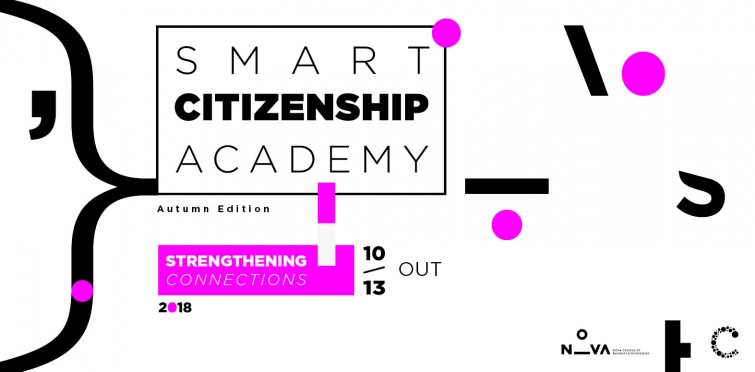António Costa Pinto is a Portuguese researcher at the Institute of Social Sciences of the University of Lisbon, lecturer at different universities, political commentator and coordinator of numerous scientific papers on this subject.
Frederick DeVeaux is a Senior Research Fellow at the Dalia Institute in Berlin and he has led the Perception of Democracy in the World Index in 2018.
On the first day’s afternoon, the participants will be invited to experience Plan B – a collaborative game that will challenge the participants to define values for a democratic, socially just and environmentally sustainable society, while confronting them with their own attitudes and contradictions.
The second day will begin with a panel dedicated to the evaluation of 30 years of participatory budgets in the World and the future challenges that are envisaged for these practices. The presentations will be made by Nelson Dias, scientific coordinator of this Academy and consultant of numerous organizations; by Chelsey Lepage, member of the Reboot project team, which is conducting extensive comparative research work on participatory budgets on different continents; and by Giovanni Allegretti, researcher at the Center for Studies of the University of Coimbra and one of the most respected experts on the subject.
The models and challenges of Participatory Budgets will be analyzed, based on the experience presented by Joana Balsemão, councilor of the Municipality of Cascais (Portugal), Paula Matas Trenas, Head of the Inclusion, Neutrality and Privacy Service of the Municipality of Madrid (Spain), Coline Berthaud, representative of the Paris PB (France) and Elena Matveeva, Director of the Budgetary Policy and Open Budget Department at the Ministry of Finance of Sakhalin Region (Russian Federation).
One goal of this course is to reach tangible products that can serve as a reference and be used in future actions related to the issues under analysis. That is why in the second and third day’s afternoon, two working groups of participants will have as mission to elaborate a frame of reference with indicators to evaluate the quality of participatory budgets and, the other group, to create a video’s script to explain Youngers what is participatory democracy and some of its tools.
The third day will be devoted to the concept of collaborative democracy, with two panels being planned. The first will be led by Marco Espinheira, Municipal Director of the Cascais City Council, who is in charge of the "future" areas, and Pedro Santa Clara, Vice-President of Nova SBE. These two guests will address the challenges associated with the construction of collaborative territories, where the State, Market and Society synergies mutually reinforcing each other.
The following is a panel with case studies, having as guests Donato Di Memmo, Ernesto Ganuza and Eirikur Bergmann.
Donato Di Memmo, from the Municipality of Bologna, will bring the example of the urban creativity laboratory of this Italian city, dedicated to the design of actions of strategic planning and the promotion of a municipal policy management of public goods.
Ernesto Ganuza is a member of the Spanish Research Council and consultant for the implementation of different participatory processes, which will provide the participants with the case of deliberative research, developed with the objective of defining a public policy of water use in Andalusia, Spain.
Eirikur Bergmann is a university professor, who will present the Icelandic experience of collectively drafting a new constitution, after the 2008 financial crisis.
The fourth and final day of this Academy will be dedicated to the topic of technology for citizen participation. The framework on this theme will be handled by Tiago Peixoto, an expert from the World Bank, recently appointed by an independent organization as one of the 20 most influential people in the world in governance technologies.
The following is a panel with some of the most exciting examples of today. This panel will be composed by Isabel Xavier, who will present City Points Cascais, a tool created to value and reward good citizenship practices; by Sonya Reynolds, data director for the New York Civic Engagement Table; by Betsy Gardner, of the Engagement Lab of Boston (USA), a structure dedicated to the design of technological devices for political and community participation; and by Ekaterina Petrikevich, from D21 of the Czech Republic, who will be responsible for presenting an electronic voting platform designed to find points of consensus and divergence among participants.
Given the characteristics and objectives of the event, the organization decided to open only fifty vacancies. However, it was necessary to increase this number due to the great national and international demand of interested parties, among which are members of governments, local elected politicians, local government technicians, researchers and people from social organizations.
There will be represented at the Academy 20 different nationalities from four continents.

